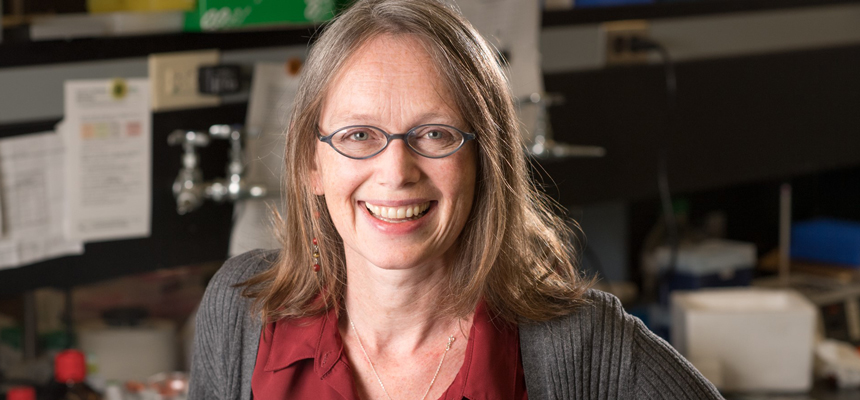Less calories, longer lives
By Jan Jarvis

Since 2000, Dr. Rozalyn Anderson has studied aging and how calorie restriction helps monkeys live longer, healthier lives.
What she has found is monkeys who eat less than their peers get fewer diseases of aging, such as cancer and cardiovascular disease.
“A smaller body means a longer life and greater health,” Dr. Anderson said. “And what works in monkeys is likely to work in humans too.”
But cutting calories as a lifestyle choice is not the point, said Dr. Anderson, who will be the keynote speaker at the Neurobiology of Aging Trainee Symposium on May 11 at UNTHSC. Rather, it’s understanding how the biology of aging and how calorie restrictions extend health.
Why all the interest in monkeys?
They share about 93 percent of their DNA with humans, said Dr. Anderson, Associate Professor at the University of Wisconsin School of Medicine and Public Health. For her headline-making research, the monkey’s calories were restricted by 30 percent throughout adulthood.
“Expecting people to cut back on their diet by even 25 percent would be quite a lot,” she said. “My research is not a lifestyle recommendation. It’s a way to understand aging.”
Dr. Anderson’s research looks at how metabolism changes over time and the underlying causes of diseases that occur as animals and humans get older.
The Neurobiology of Aging Trainee Symposium is supported by an NIH training grant that is now in its 15th year of funding, said Meharvan Singh, PhD, Professor of Pharmacy and Neuroscience at UNTHSC.
“It gives our trainees an opportunity to share their research progress with the local community of faculty, staff and students at UNTHSC and area institutions and receive feedback from our keynote speaker, a nationally renowned researcher in the field,” said Dr. Singh. “It also creates an awareness of the high caliber of research and training opportunities on our campus.”
Dr. Anderson said she looks forward to sharing her research and hearing from students at the symposium.
The event begins at 8 a.m., followed by the keynote presentation at 12:30 in CBH 220.



![Uyen Sa Nguyen Scaled[58]](https://www.unthsc.edu/newsroom/wp-content/uploads/sites/16/Uyen-Sa-Nguyen-scaled58-145x175.jpg)

Social media